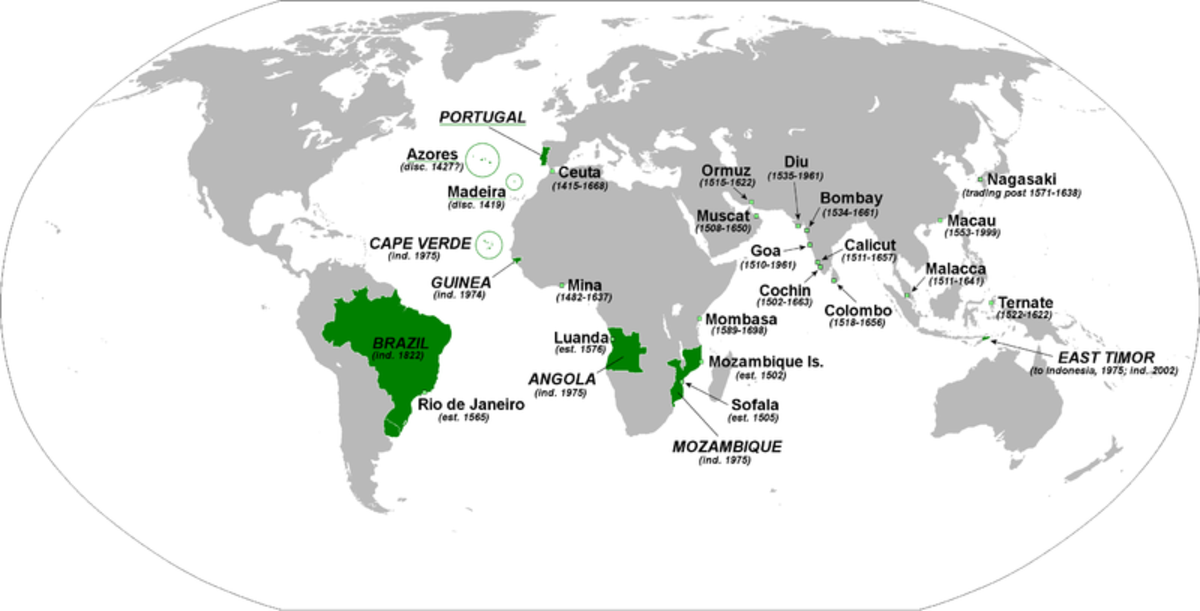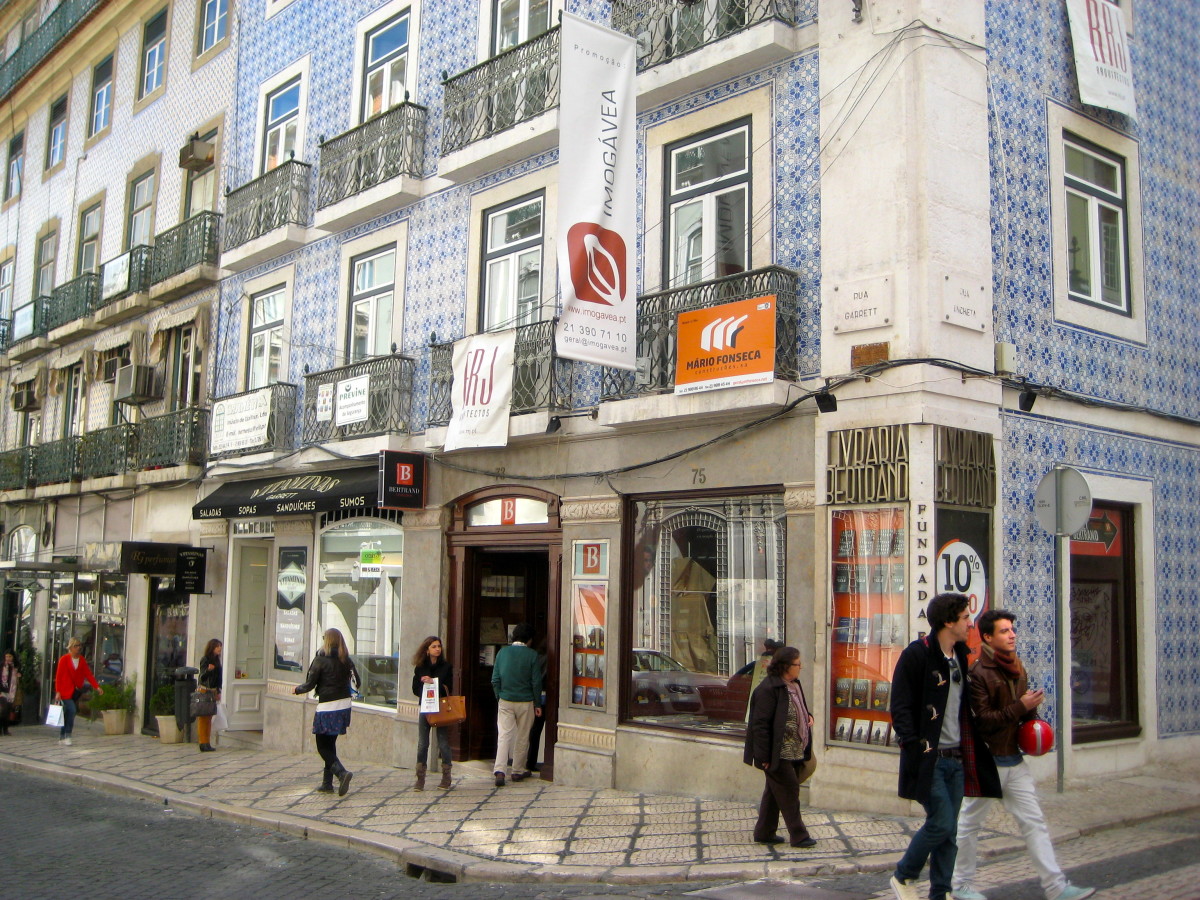We will follow the purple dots. There are 13 stages from Lisbon to Porto (372.2 km - ave 28.6 km/day) and 10 stages from Porto to Santiago (241.9 km - ave 24.2 km/day) for a total of 23 stages of 614.1 km ave 26.7 km/day. The path is way marked. The daily km are quite lengthly but with little or no elevation....staying true to my prairie dog roots!
Some interesting things about Portugal:
The Portuguese flag

Source

Belem Tower | Source
1. Half of the "New World" once belonged to Portugal
In 1494, the Treaty of Tordesillas was signed which essentially gave Portugal the eastern half of the "New Word", including Brazil, Africa, and Asia. The Portuguese Empire was actually the first global empire in history! It was also one of the longest-lived colonial powers, lasting for almost six centuries from when Ceuta was captured in 1415, until Macau (now China) was handed-over in 1999. In 1808, the King of Portugal, Dom João moved to Brazil and proclaimed a single state which included Portugal, Brazil and the Algarves. The single state was called the United Kingdom of Portugal, Brazil and the Algarves, which was effective from 1815-1822. The new capital of the kingdom was Rio de Janeiro. The kingdom was disestablished in 1822 after the King returned to Portugal in 1821, leaving his son, Prince Dom Pedro to rule Brazil who in turn declared independence from Portugal.
The Portuguese Empire was huge - its former territories are annotated in green

The Portuguese Empire after the Treaty of Tordesillas was signed | Source
University of Coimbra - one of the oldest universities in Europe

Source
2. Portuguese is the official language of 9 countries
Over 236 million people world-wide are native Portuguese speakers. Portuguese is the official language of Portugal, Brazil, Cape Verde, Angola, Guinea Bissau, Mozambique, Principe, Sao Tome, and Equatorial Guinea. Portuguese is also spoken in Goa (India), Macao, and East Timor.
3. Portugal is the oldest country in Europe
Portugal has had the same defined borders since 1139, making it the oldest nation-state in Europe. Afonso Henriques was proclaimed the first King of Portugal in 1139 and the country remained a kingdom for almost 800 years thereafter, until 1910.
4. The oldest bookstore in the world is in Portugal's capital

Bertrand bookstore (pictured above, located at the corner), was established in 1732, is located in the capital of Portugal - Lisbon. | Source
5. Portugal is the largest cork producer in the world
Portugal produces 70% of the world's cork exports. Main importers of Portuguese cork are: Germany, the U.K., and the U.S. The country also has the largest cork forest.
6. One of the oldest universities in Europe is in Portugal
The University of Coimbra was established in 1290, making it one of the oldest universities on the European continent.
Vasco da Gama Bridge

Source
7. Portugal has the longest bridge in Europe
The Vasco da Gama Bridge in Lisbon is 10.5 miles (17 kilometers) long, making it the longest in Europe.
8. Portugal and England have the oldest diplomatic alliance in the world
The Anglo-Portuguese Alliance was signed in 1373 and is in force until this day! Both countries entered wars to defend the other, including the United Kingdom entering the Iberian Peninsular War and Portugal entering World War I. Talk about having someone's back!
9. Portugal is one of the world's top surf spots
Portugal has a coastline that spans 497 miles (800 kilometers) and it's known to have 364 days of surf!
The iconic Tram 28 in Lisbon

Source
10. In 1755, Lisbon was struck by one of the most powerful earthquakes in European history
On the 1st of November in 1755, Lisbon was struck by about a 9.0 magnitude earthquake, which was followed by a tsunami, and fires that brought the city to rubble! Furthermore, the earthquake struck on All Saints Day, a major holiday when the churches were filled with burning candles. The earthquake struck, toppling the candles, causing major fires. 275,000 residents were killed and 85% of the buildings were destroyed! People talk about the devastating earthquake to this day.
11. Portuguese Fado was classified as world cultural heritage by UNESCO
Fado (fate in Portuguese) is a music genre that originates in urban Lisbon. It's a type of mournful and heart-touching folk music sung by the common people. The music genre was recently added to the World's Intangible Cultural Heritage list.
12. Portugal was the first colonial power to abolish slavery
Portugal abolished slavery all the way back in 1761 - that's half a century before Britain, France, Spain, or the United States.

